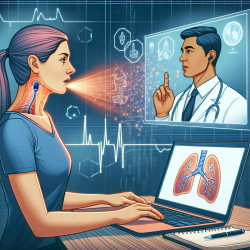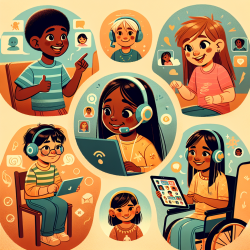The COVID-19 pandemic has drastically altered the professional landscape for teachers, significantly impacting their vocal health and communication strategies. Recent research titled COVID-19 and the teacher's voice: self-perception and contributions of speech therapy to voice and communication during the pandemic provides critical insights into these changes. The study surveyed 1,253 Brazilian teachers, revealing both improvements and challenges in their vocal health during the pandemic.
Key findings from the research include:
- Approximately 30% of teachers noticed an improvement in their voice quality during the pandemic, while 12% experienced a worsening.
- Common symptoms reported were dry throat (43%), stress (27%), and general tiredness (27%).
- Factors contributing to vocal strain included prolonged vocal use, inadequate hydration, and the use of headphones.
- Teachers reported making more vocal effort during remote classes, with 65.8% believing it negatively impacted their performance.
These findings suggest several actionable steps that speech-language pathologists can take to support teachers:
- Hydration: Encourage teachers to drink adequate water throughout the day to combat dry throat and maintain vocal health.
- Vocal Rest: Advise teachers to incorporate vocal rest periods during their day to prevent strain and fatigue.
- Stress Management: Provide resources and techniques for managing stress, which can significantly impact vocal quality.
- Proper Use of Technology: Offer guidance on the correct use of headphones and microphones to minimize vocal strain.
Moreover, the research underscores the importance of continuous professional development and the role of speech-language pathologists in offering tailored advice and interventions. By staying informed and proactive, practitioners can significantly enhance the vocal health and overall well-being of teachers.
To read the original research paper, please follow this link: COVID-19 and the teacher's voice: self-perception and contributions of speech therapy to voice and communication during the pandemic.










